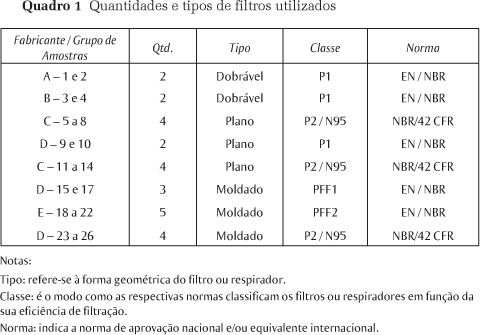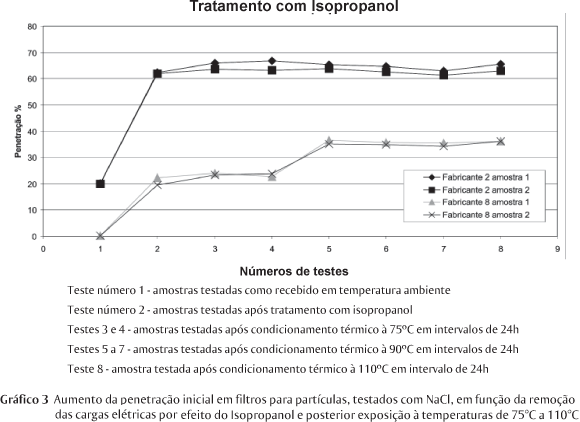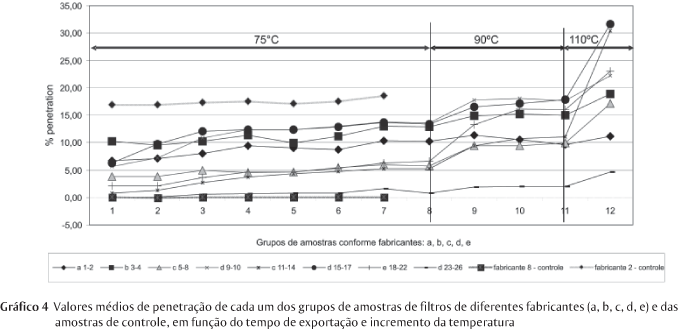Particle filters are very commonly used in industries in general. The standards adopted for the approval of these filters define tests and approval criteria aiming at guaranteeing the efficiency of the filters in the long run. Facts such as: type, size, speed, particle charge and temperature are considered on the approval tests. This article aims at checking the way eletrect particulated filters for respirators act when exposed to similar thermal conditions as the ones found in work environment. This was obtained by simulating in lab the temperature and time of exposure the respirators could be subjected to and by measuring and comparing the results in order to comply with both national and international standards recommendations. Filters and face pieces from different manufactures were tested in different temperatures and maintained under these conditions for at least 24-hours. Penetration tests were held before and after each period of exposure using 85 l/min flow rate and 0.3 to 0.6 μm NaCl particles, which are considered the Most Penetranting Particle Size (MPPS). The smallest and largest variations found were 2.53% to 18%, respectively.
mechanical filter; particle; electrostatic; safety; personal protective equipment






